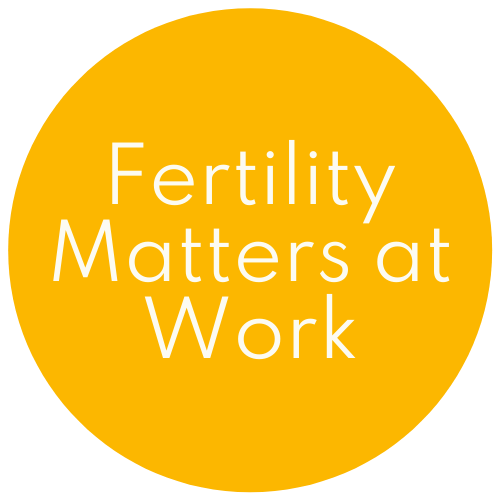Do you work for an organization that offers fertility benefits? Do you actually know what employee fertility benefits can offer you?
The umbrella of fertility benefits may encompass anything from consultations to obtaining a diagnosis, medication, and treatments such as IUI and IVF. More expansive plans might include egg freezing, donor eggs or embryos, and/or gestational surrogacy. However, in the UK, fertility benefits are less commonplace compared to the US.
In this episode continuing the fertility matters at work series, we’re joined by Jenny Saft, co-founder of Apryl, an organization that provides fertility benefits to companies in Europe to help overcome inequalities by supporting employees to thrive in their careers. Natalie came across Apryl in a report discussing the future of fertility and was intrigued to find out more about their comprehensive fertility benefits platform.
Jenny shares her own experience of working in San Francisco and making the decision to look into egg freezing. Shortly after making this decision, she returned to Germany and was struck by the negativity surrounding egg freezing. She also found the egg freezing process really confusing and Apryl was born (excuse the pun) to help women fill in the gaps.
Following on from the US trend, Apryl offers a 3 step approach for employees – know your options, find the right clinic for you, and let Apryl take over the discussions with your employer. They’re able to offer a personalized service, initial consultations and testing, treatment, and if needed adoption guidance and reimbursement of fees.
Getting Apryl out there has been far from plain sailing. Jenny has heard employers having fears based on the very initially, large companies such as Facebook and Google offering egg freezing and the way in which this was viewed to keep women in employment. Unlike the US where 30% of companies with more than 500 employees offer fertility benefits, progress is slower in Europe. In the main due to the very different health care system in the US compared to the UK and many European countries.
We talk about the benefits to organizations to show that they are fertility-friendly and ask Jenny if she feels that companies have a good understanding of these benefits such as retention and attracting talent? She feels that some companies, such as tech organizations, financial services, and law firms are ahead of the game compared to others.
Jenny hopes that more companies will come to realize the benefits of supporting their employees financially when it comes to fertility in the future. She is already noticing that those organizations that are serious about doing so, are the ones who are ready to have these conversations. Perhaps more pressure from you, the employee, is what’s needed to make this change?
SOCIALS:







